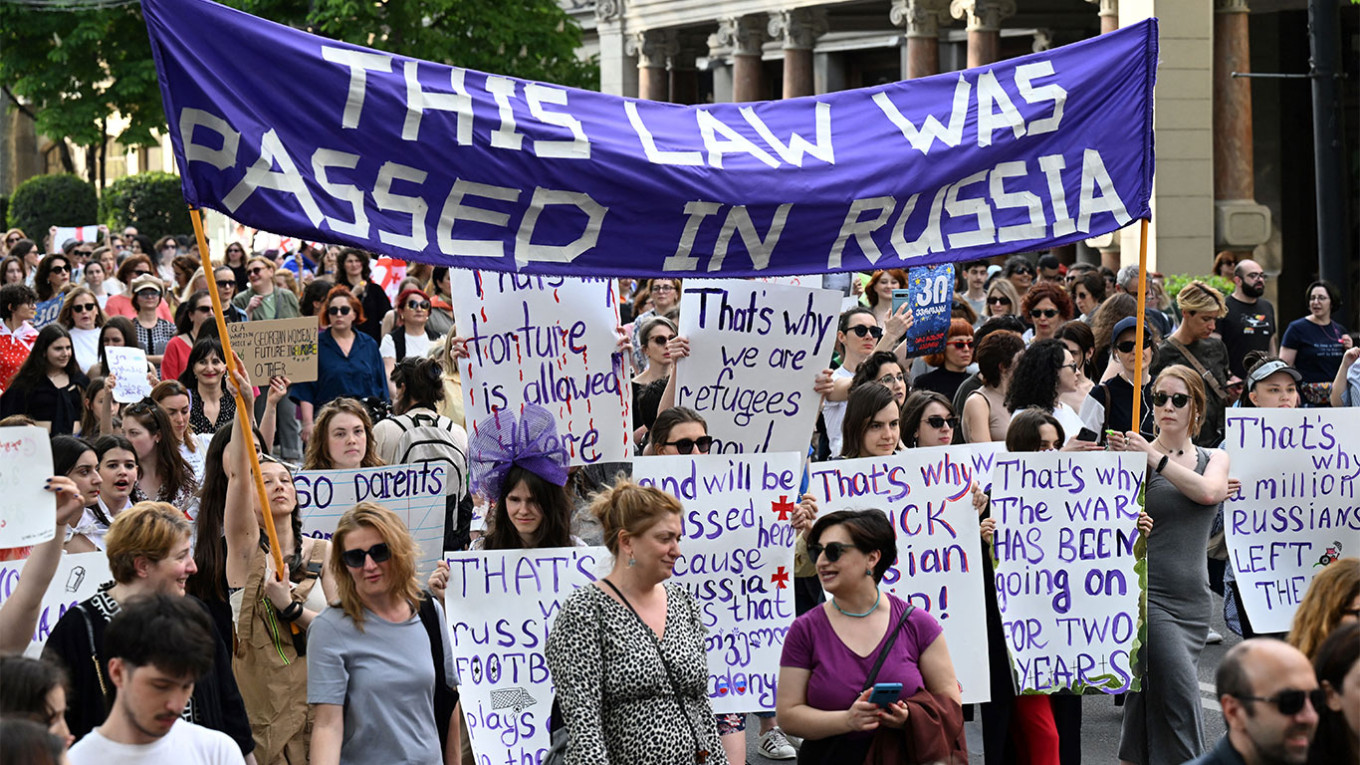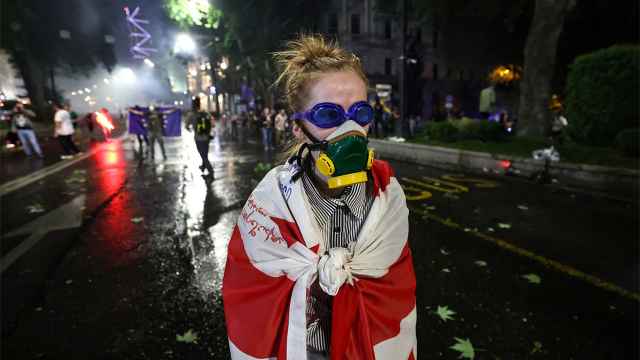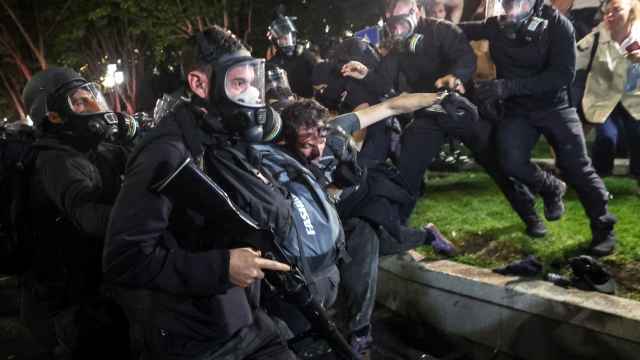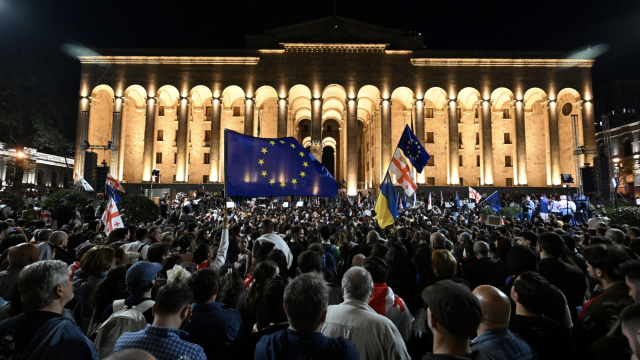Georgia’s controversial “foreign influence” bill has sharply divided Georgian politics and stirred accusations that the ruling coalition seeks to draw the country closer to Russia, as the draft law’s critics argue that it is a facsimile of repressive legislation adopted by Moscow more than a decade ago.
In Russia, officials are observing from the sidelines with cautious anticipation as tens of thousands of protesters rally against what they call a “Russian law,” and some believe the political showdown could play out in Moscow’s favor.
“We’re all watching the developments [in Georgia]. There was an order from the Kremlin for everyone to behave with caution, to abstain from making brusque statements,” said a Russian government official, who was granted anonymity to speak candidly about a sensitive issue.
“So far, everyone is very restrained, both officials and our bulldogs on state television,” he added.
Some in Moscow appear to be watching the recent anti-government protests in Tbilisi with a sense of schadenfreude. The “foreign influence” bill has sparked criticism from EU officials, who warn that its passing might endanger Georgia’s hopes to join the bloc after receiving candidate status in November last year.
“We messed up in Georgia back in the day. And now everything’s burning there,” a Russian official told The Moscow Times. “If the current government [there] suddenly collapses, we’ll keep the country within Russia’s sphere of influence this time.”
So far, the Kremlin and its mouthpieces have shied away from voicing outright support for the ruling Georgian Dream party as it moves to pass the controversial draft law, whose third and final reading is set for later this month.
At the same time, officials in Moscow have pushed back against accusations of Russian involvement in the political showdown, which has led to clashes between police and protesters, as well as physical altercations between MPs in the Georgian parliament, in recent weeks.
“There is no way this bill should be called ‘Russian’... This is now normal practice for a large number of states that do everything to protect themselves from outside influence, from foreign influence on domestic politics,” Kremlin spokesman Dmitry Peskov told journalists in April.
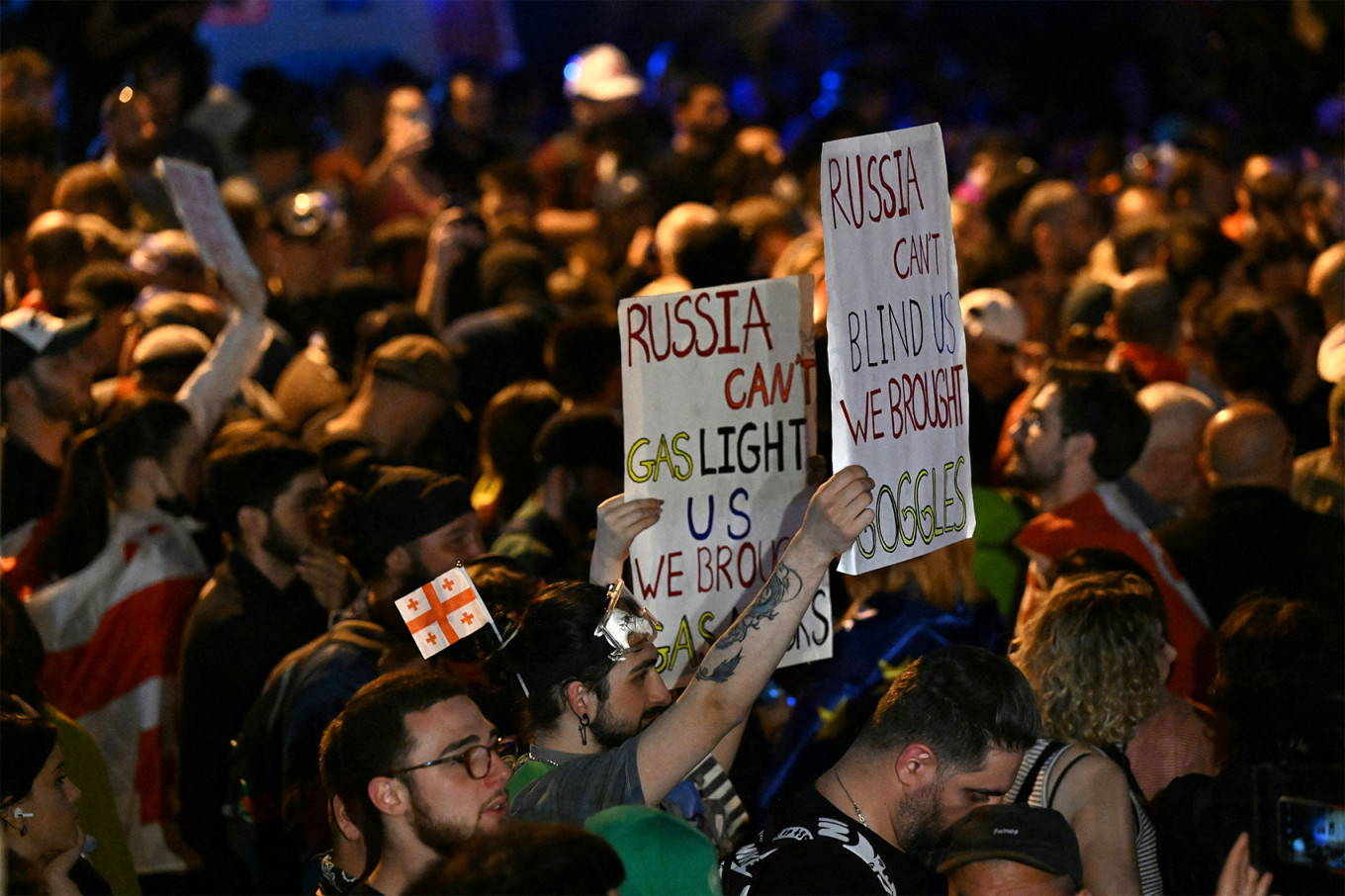
Diplomatic relations between Moscow and Tbilisi were severed following the 2008 August War, which ended in Russia recognizing the independence of the two breakaway territories of Abkhazia and South Ossetia. To this day, Moscow does not have a diplomatic mission in the South Caucasus country.
However, according to a source close to Russia’s Foreign Ministry, the two countries maintain some lines of communication in spite of their chilly relations, though these “need to be concealed” in order to avoid provoking a backlash from the Georgian public.
The source said that despite these channels, the Kremlin has not played any role in Georgian Dream’s new “foreign influence” draft law or in the party’s gradual anti-Western turn of recent years.
“Georgian society is split between Euro-enthusiasts and Euroskeptics. So there are domestic reasons for why this is happening,” the source told The Moscow Times, referring to the controversial bill.
The ruling party is backed by those who are “somewhat in favor of traditional values, sovereignty, independence, and a more balanced approach to Russia,” according to the source, who added that Georgian Dream would like to “create a mechanism to detect Western funding of its opponents.”
Nevertheless, the source said greater scrutiny toward Western-funded organizations, including NGOs and media outlets, as well as increased pressure on Georgia’s domestic opposition — which is spearheaded by jailed ex-president Mikheil Saakashvili’s United National Movement — would be welcomed by the Kremlin.
Many suspect that Georgian billionaire Bidzina Ivanishvili, who briefly served as prime minister and is Georgia’s wealthiest man, is leading his party’s anti-Western turn, all the while pushing the South Caucasus nation into the Kremlin’s clutches.
In a rare public speech last month, the businessman railed against what he called the Western “party of war” and vowed to fight for the “foreign influence” bill, as well as a controversial “LGBT propaganda” legislation.
A longtime acquaintance of Ivanishvili in Russia told The Moscow Times that the Georgian billionaire and the Russian authorities do have an interest in normalizing relations and maintaining ties, but ones that are built primarily on pragmatic considerations, such as business and the economy.
“The authorities in Tbilisi fear Moscow. And Borja knows and feels the Kremlin regime well,” the acquaintance said, referring to Ivanishivili by an old nickname. “He knows that it’s better to stay away [from Russia]. But it is also dangerous to refuse [having any kind of relations].”
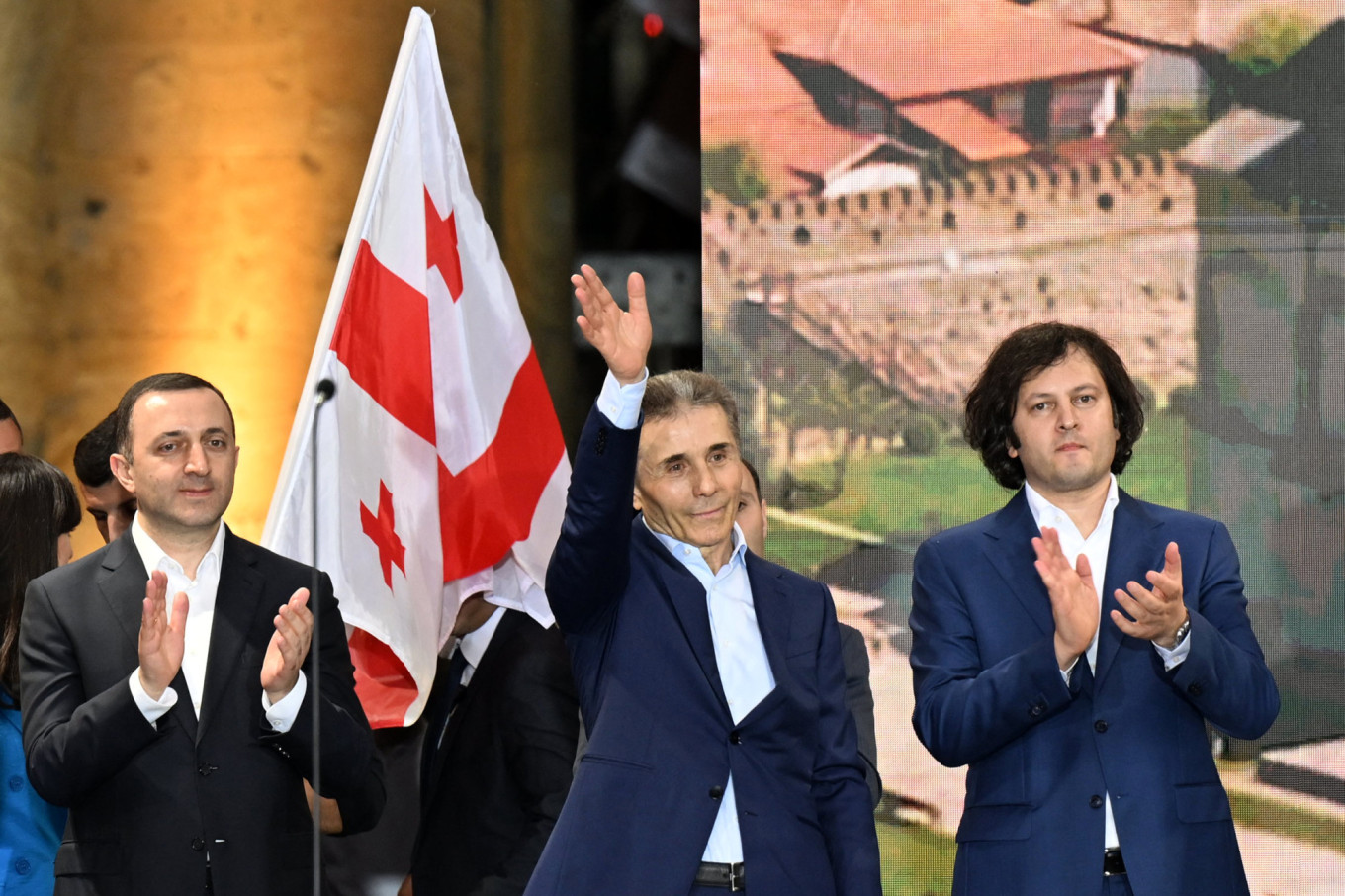
At the same time, according to the longtime acquaintance, Ivanishivili stands to personally benefit from “playing the role of a Georgian dictator,” adding that “it’s not for nothing” the billionaire invested so much money in trying to keep Georgian Dream in power for over a decade.
The issue of holding onto power is key to the events unfolding in Georgia. Several sources who spoke to The Moscow Times compared the mass protests in Tbilisi against the “foreign influence” bill to the start of the 2014 Euromaidan protest movement that erupted in Ukraine after then-president Viktor Yanukovych refused to sign an EU association agreement.
“Parallels can be drawn with Ukraine. But the split of the elites was even stronger there,” a Russian diplomat said on condition of anonymity.
The diplomat added that he did not believe the Kremlin would intervene in Georgia as it had during the mass demonstrations across Ukraine over a decade ago, while also expressing the view that the authorities in Moscow and Tbilisi have learned how to deal with each other despite their differences.
Yet not everyone shared the belief that Russia would resist the urge to thwart the ambitions of Georgia, a former Soviet republic, to align itself with the West.
A government official who used to work in Russia’s security services insisted that “the West is trying to turn the [Commonwealth of Independent States] countries against Russia,” referring to the Moscow-led regional grouping that Georgia withdrew from after the 2008 War. “One can notice it everywhere already.”
“I think Georgia, looking at the recent past, doesn’t want an anti-Russian external protege,” he said, referring to the pro-West Saakashvili.
A Message from The Moscow Times:
Dear readers,
We are facing unprecedented challenges. Russia's Prosecutor General's Office has designated The Moscow Times as an "undesirable" organization, criminalizing our work and putting our staff at risk of prosecution. This follows our earlier unjust labeling as a "foreign agent."
These actions are direct attempts to silence independent journalism in Russia. The authorities claim our work "discredits the decisions of the Russian leadership." We see things differently: we strive to provide accurate, unbiased reporting on Russia.
We, the journalists of The Moscow Times, refuse to be silenced. But to continue our work, we need your help.
Your support, no matter how small, makes a world of difference. If you can, please support us monthly starting from just $2. It's quick to set up, and every contribution makes a significant impact.
By supporting The Moscow Times, you're defending open, independent journalism in the face of repression. Thank you for standing with us.
Remind me later.



